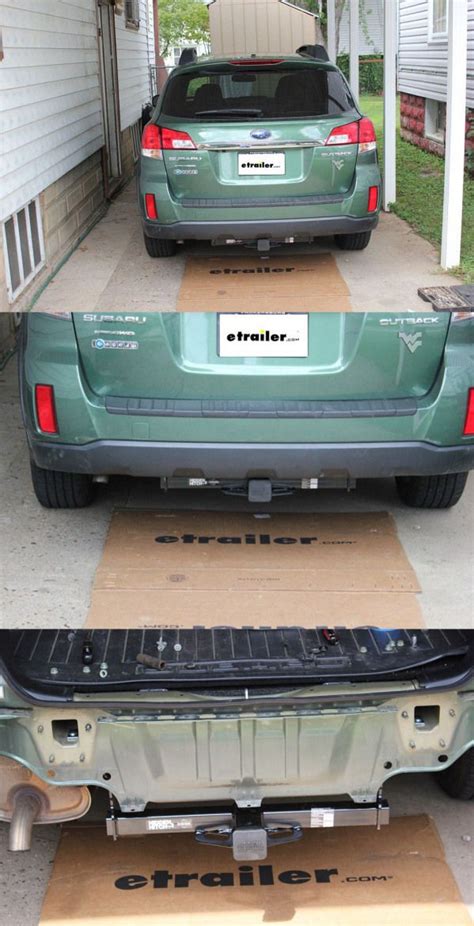Subaru Hitch Installation: Finding the Perfect Fit for Your Budget
Adding a hitch to your Subaru opens up a world of possibilities, from hauling bikes and kayaks to towing trailers. But with various hitch types, brands, and installation methods available, navigating the process can feel overwhelming. This guide breaks down everything you need to know about Subaru hitch installation, helping you find the perfect fit for your budget and needs.
What are the Different Types of Hitches?
Before diving into installation, understanding the different hitch types is crucial. The most common types for Subarus are Class I, II, and III.
- Class I Hitches: These are the smallest and have the lowest towing capacity, typically suitable for carrying bike racks or small cargo carriers. They're ideal for those who need light-duty towing or carrying.
- Class II Hitches: Offering a higher towing capacity than Class I, Class II hitches are a good all-around option for many Subaru owners. They're suitable for various applications, including small trailers and larger cargo carriers.
- Class III Hitches: These are the most robust and offer the highest towing capacity, perfect for larger trailers and heavier loads. However, they might not be necessary for all Subaru owners.
The right class depends entirely on your intended use. Check your Subaru's owner's manual for the recommended maximum towing capacity before selecting a hitch.
How Much Does Subaru Hitch Installation Cost?
The cost of Subaru hitch installation varies considerably based on several factors:
- Hitch Type: Class III hitches generally cost more than Class I or II due to their heavier construction.
- Installation Method: DIY installation is the most budget-friendly option, but it requires mechanical skills and the right tools. Professional installation is more expensive but guarantees proper fitting and avoids potential warranty issues.
- Brand: Different brands offer varying price points. While some reputable brands command higher prices, their quality and warranty might justify the cost.
- Labor Costs: Professional installation fees vary geographically and by the shop's pricing structure.
Expect to pay anywhere from $100 for a basic Class I hitch and DIY installation to over $500 for a professional installation of a Class III hitch, including parts and labor.
DIY vs. Professional Installation: Which is Right for You?
Choosing between DIY and professional installation depends on your mechanical skills and comfort level.
DIY Installation:
- Pros: Significantly cheaper. A rewarding experience for mechanically inclined individuals.
- Cons: Requires specialized tools, mechanical knowledge, and time. Improper installation can void your warranty or lead to safety hazards.
Professional Installation:
- Pros: Guaranteed proper installation, avoids potential warranty issues, and ensures safety. Often comes with a warranty on the installation itself.
- Cons: More expensive. Requires scheduling an appointment and potentially waiting for availability.
Finding the Right Hitch for Your Subaru Model and Year
It's crucial to select a hitch specifically designed for your Subaru's model and year. Using the wrong hitch can lead to poor performance, safety issues, and even damage to your vehicle. Most manufacturers' websites allow you to search by vehicle make, model, and year to identify compatible hitches.
What Tools are Needed for DIY Hitch Installation?
If you're opting for DIY installation, you'll need various tools, depending on the specific hitch and your vehicle. Generally, you'll need:
- Jack and Jack Stands: To safely lift your vehicle.
- Sockets and Wrenches: For removing and installing bolts.
- Drill (sometimes): Depending on the hitch design, you might need to drill pilot holes.
- Safety Glasses and Gloves: Essential for protecting yourself during the installation process.
Remember to consult the hitch manufacturer's instructions for a complete list of necessary tools.
Can I Install a Hitch Myself? Is it Difficult?
Whether or not you can install a hitch yourself depends on your mechanical aptitude. Some hitch installations are relatively straightforward, while others are more complex and may require advanced skills. If you're unsure, professional installation is always the safer option.
What is the Warranty on a Hitch and Installation?
The warranty on a hitch and its installation varies depending on the manufacturer and installer. Always check the warranty information before purchasing and having the hitch installed.
By carefully considering these factors and weighing your budget against your mechanical skills, you can confidently choose the right hitch and installation method for your Subaru. Remember safety is paramount; if you have any doubts about your ability to install the hitch yourself, don’t hesitate to seek professional help.

